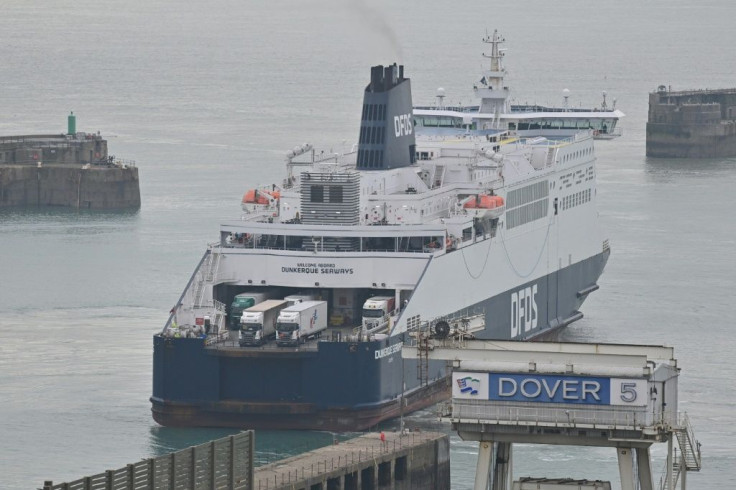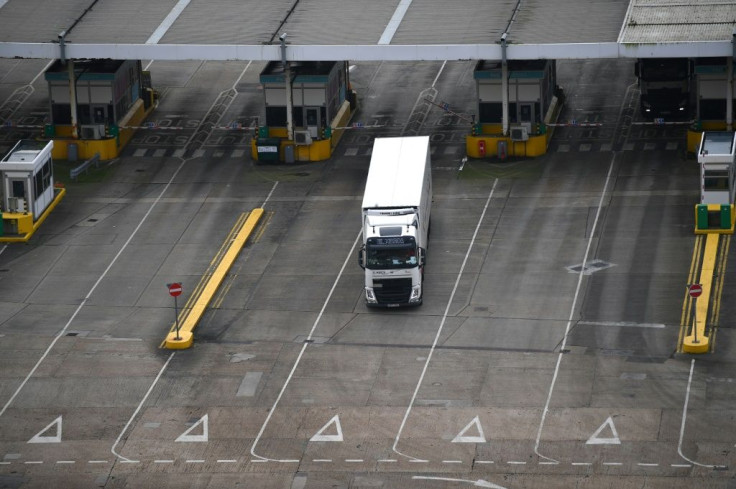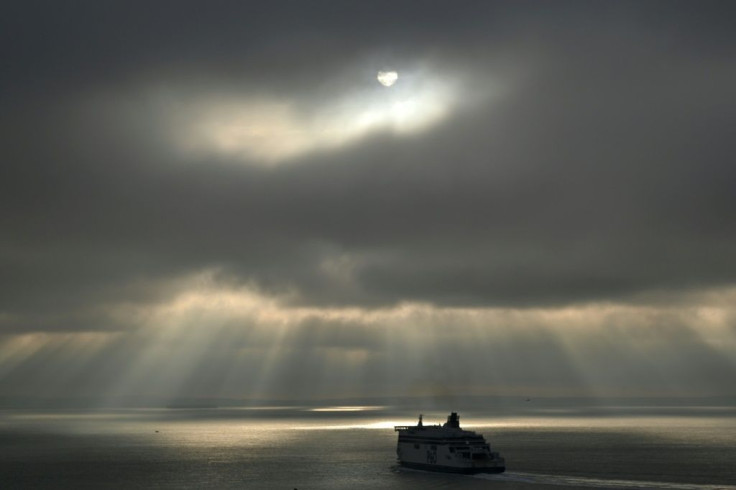All Quiet On Cross-Channel Front As New Era Opens In Dover
As dawn broke Friday over Dover, Britain's trading gateway to the European Union, the first ferry sailings to and from France of the new post-Brexit era left without delay or drama in holiday-thinned traffic.
A small but steady stream of lorries arrived through the morning at the port in southeast England -- Europe's busiest for roll-on, roll-off freight -- with new customs processes appearing to work smoothly.
As drivers approached its eastern ferry docks, they were met by police officers checking that they had completed Covid-19 tests, before being waved through if they showed a negative result.

The driver of a red van with Polish number plates was one of very few turned away for not having a test result, and redirected to sites north of the port where rapid testing is being conducted.
"It's good to see the port's done its job and there's no backlog," Alan Leigh, 52, of nearby Folkestone, told AFP while taking an early New Year's Day stroll on the famous white cliffs above the docks.
Beneath him P&O's "Pride of Kent" vessel sailed out of Dover on time at 0750 GMT, as Britain began life outside the EU's single market and customs union.
"They've had plenty of time to prepare," Leigh said of officials and government departments. "They're experts -- you've got to have faith in them."

A last-ditch trade deal between London and Brussels, signed only on Christmas Eve, has averted the need for tariffs and quotas that could have severely disrupted trade.
Scores of lorries also passed through the Channel Tunnel connecting Folkestone to France by rail early Friday "without any problem", its operator Getlink said.

However, those involved in cross-Channel trade still fear potential trouble in the coming weeks and months, as customs checks and more paperwork for European travel and trade are needed for the first time in decades.
Ferry group Stena Line tweeted that six freight loads bound for EU member Ireland were turned away at the port of Holyhead in north Wales on Friday for not having the correct paperwork.
However, freight traffic is expected to be lower than usual over the coming days after firms scrambled to move extra shipments ahead of the end of an 11-month Brexit transition period at 2300 GMT Thursday.
Friday was a public holiday for New Year's Day in both Britain and France, and officials expect a bigger test when cross-Channel traffic picks up next week.
Last week saw queues of lorries backed up for miles (kilometres) on the M20 motorway through the county of Kent into Dover, as France temporarily shut its borders to traffic from Britain following the emergence of a new coronavirus variant.
Locals fear a repeat of the chaotic scenes, due to the new Brexit bureaucracy, although the government is issuing fines to any truck drivers arriving in Kent without a new permit -- dubbed "Kermits" -- showing they have pre-cleared customs checks.
"It's concerning," said Dover resident Chris Waller, 39, as nearby some hardy swimmers took a New Year's Day dip in bracing Channel waters.
"We'll take things as they come. I don't have confidence in the abilities of the powers that be to organise things," he added.
Luigi Del Duca, 69, an Italian who has lived in Dover for 43 years -- nearly as long as Britain was an EU member -- said he feared the changes could mean fewer European visitors, hurting his fish and chip shop.
"It's too soon to see the impact of this Brexit," he told AFP.
"Maybe they'll still come but not as many as used to... (it) may put people off."
© Copyright AFP 2024. All rights reserved.





















